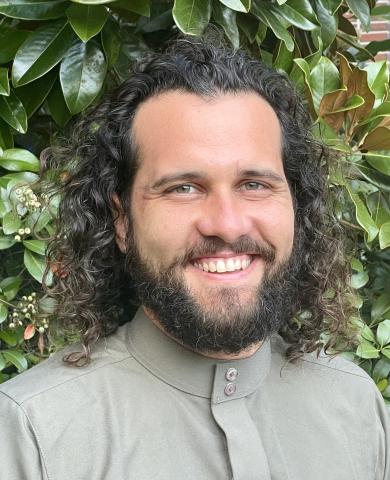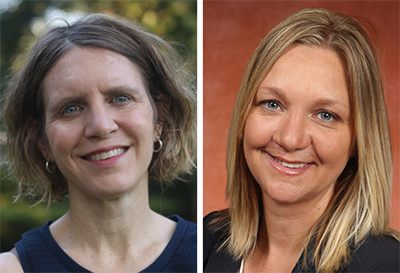Social Work Doctoral Student Leads Analysis Evaluating Support for Mothers Aging Out of Foster Care

“Early parenthood is associated with risk factors for both the mother and child and involvement in foster care amplifies these challenges,” stated Esaa Mohammad Sabti Samarah, a doctoral candidate at the FSU College of Social Work.
A recent study in the Child and Adolescent Social Work Journal by Esaa and Professor Melissa Radey and Associate Professor Shamra Boel-Studt at the FSU College of Social Work examined the roles of formal and informal support for mothers aging out of maternity group homes as their young families face a variety of complex challenges.
Young families participate in maternity group homes where they can find a variety of support services, including housing, healthcare, education, employment, and parenting skills. These group homes seek to mitigate the risk of poor outcomes for young families by preventing situations like homelessness and by providing emotional support during mothers’ progression into adulthood.
“Formal and informal support is critical for mothers as they age out of maternity group homes for meeting families’ basic needs and shaping their experiences,” he continued.

Informal support can include support from family, friends and community members. These connections can offer valuable emotional and practical assistance but can also lack consistency and become strained. Formal support consists of various forms of government assistance, including relationships with caseworkers.
“Barriers to reliable sources of formal and informal support can leave many mothers dependent on self-reliance amidst the challenges of adjusting to adulthood with a child,” he added.
The crucial nature of these sources of support continues to rise as the journey into adulthood continues to become more complex.
“The age of independence is rising,” stated Dr. Radey. “Increased housing and education costs have normalized parental support through the 20s. Young adults are increasingly dependent on their family, making the availability of publicly-funded programs, including maternity group homes, all the more consequential for those who cannot turn to family members in their times of need.”
The study’s findings highlight three key areas for informing policy and practice for mothers moving out of these group homes, including:
- The need for extended services prior to exiting maternity group homes.
- The importance of developing healthy informal support networks and relationship skills.
- The necessity for extending and re-engaging support after the initial adjustment period.
Extending services can help mothers who may lack some formal and informal support, helping them become educated on available public services and gaining access to peer support networks.
“Many mothers aging out of foster care do not have others who they can turn to in times of need,” underscored Dr. Radey. “People have let them down. Rightly so they are often skeptical of others.”
Radey added, “Increasing caseworker stability in the workforce together with compensating workers for staying connected with those aging out of care past the age of 18, particularly those without stable family connections, can model caring, trusting relationships to promote maternal and family well-being.”
The research team has several recommendations for additional research:
- How limited informal support networks impact emotional well-being for mothers moving out of foster care.
- Evaluating the effectiveness of extended foster care programs for young adults and young mothers.
- Assessing support services on young mothers’ self-reliance.
- Testing the effectiveness of maternity group homes to facilitate well-being.
- Developing the evidence base and key components of maternity home services that make them effective.
